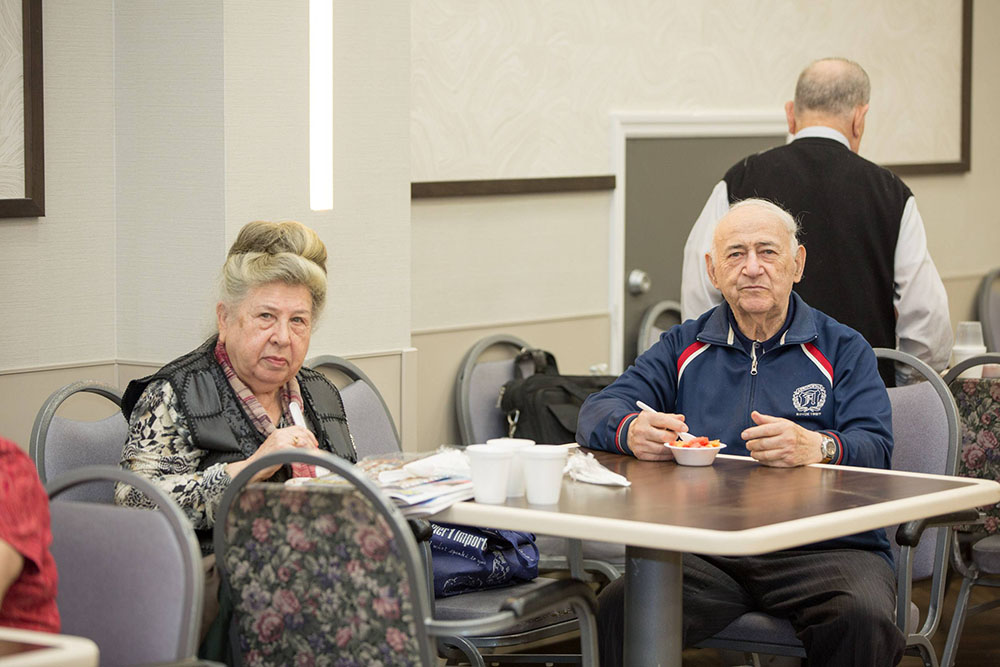Where Is the Best Place for Someone with Early Dementia?
Dementia progresses slowly over time and is often unnoticeable during the early stages. Some symptoms include a loss of interest in hobbies, apathy, forgetfulness, repetitive conversations, and irritability. Though most people are still relatively independent, they may require assistance to engage in mental and social activities. Friends and families can help, but during this stage, an adult day care may be the best place for early dementia patients.
Adult day care centers offer various activities to stimulate the brain and memory. These activities are designed to keep the brain focused and active to slow the progression of the disease. Other benefits and programs offered by ADCs include emotional support, cognitive therapy, physical therapy, and rehab activities – all under one roof.
If you’d like to learn more about what an ADC has to offer, keep reading.

Why Is Adult Day Care The Best Place For Early Dementia?
For seniors in the early stages of dementia, maintaining daily activities and social engagements becomes difficult. Those requiring outside assistance have a couple of options, though they don’t offer the same benefits.
Senior centers are one of these options, providing older individuals with a safe space to interact with others. These facilities also have areas for adults to take classes or exercise to maintain mental and physical health.
The downside is that senior centers are limited in their ability to aid those with mental health issues. That’s where an adult day care center is the best place for those with early dementia. ADCs focus more on mental health, offering more care and support than other centers have available.
What do ADCs offer?
Though not every ADC offers identical services and programs, most include the following care options. These are essential for those in the early stages of dementia, giving them the physical, mental, and emotional support required.
- Mental activities and support – In the early stages of dementia, individuals begin to lose some of their mental functions. They may struggle to make decisions, repeat themselves, forget details, and become irritable when they can’t perform certain tasks. Adding mental activities to their routine helps retain their former abilities, slowing the disease’s progression. ADCs also offer mental support to help them learn to deal with the loss of those functions.
- Fitness and rehab therapies – Exercise is essential to keep the body and mind healthy and strong. ADCs feature various physical activities and exercise programs designed for those with dementia. Other rehab therapies, including occupational therapy, speech therapy, and recreational therapy, are also available at many ADC facilities, which make it the best place for people with early dementia symptoms.
- Social workers’ help – Elderly individuals with dementia may be eligible for social services they aren’t aware of. These services can include financial assistance or care programs. ADCs often have social workers on staff who can help elderly seniors gain access to such services.
- Medical care – Though ADCs are a prime source of entertainment activities and social interactions, many also include medical care. Such care could include assistance with medication, blood pressure checks, nutritional information, and weight management. ADCs that offer such services are the best place for those with early dementia to maintain their health.
Fairview Adult Day Care Center in Brooklyn NY offer cognitive therapy, exercises, rehab therapies and therapeutic recreation activities for those with early dementia symptoms. Contact us or walk in if you are in or around Brooklyn NY to talk about our services.
Resources:
https://www.dementia.org.au/about-dementia/what-is-dementia/progression-of-dementia
https://www.alz.org/help-support/caregiving/care-options/adult-day-centers
https://www.aarp.org/caregiving/home-care/info-2017/adult-day-care.html
This article is for educational and informational purpose only and does not substitute for professional medical advice. For any questions about your own health condition, speak to a qualified physician or healthcare provider.







Leave A Comment